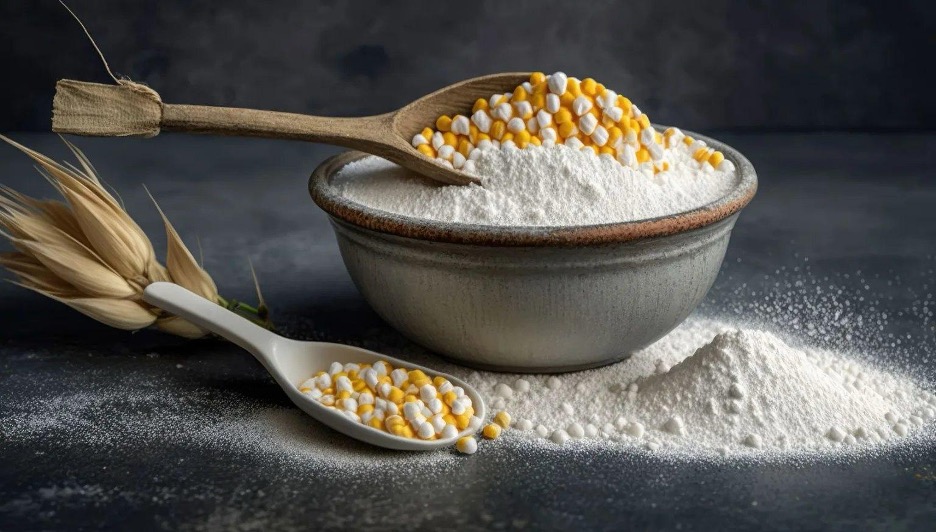The Benefits of Resistant Dextrin: A Digestive Health Powerhouse

Resistant dextrin is gaining attention in the health and wellness world, particularly in the realm of digestive health. As a type of dietary fiber, resistant dextrin offers unique benefits that can support overall well-being. In this article, we’ll explore what resistant dextrin is, how it works, and the various health advantages it provides.
What is Resistant Dextrin?
Resistant dextrin is a type of soluble fiber derived from starch, often from corn, wheat, or potatoes. It is produced through a process that alters the starch’s structure, making it resistant to digestion in the small intestine. Unlike regular starch, which is broken down into glucose and absorbed into the bloodstream, resistant dextrin passes through the digestive system largely intact. This resistance to digestion allows it to function as a prebiotic fiber, providing nourishment to beneficial gut bacteria in the large intestine.
How Resistant Dextrin Supports Digestive Health
Resistant dextrin’s primary role in the digestive system is to promote gut health. Here’s how it works:
- Feeds Beneficial Gut Bacteria: Resistant dextrin acts as a prebiotic, which means it feeds the good bacteria in your gut. These bacteria, in turn, produce short-chain fatty acids (SCFAs) like butyrate, which are vital for maintaining the health of the colon and reducing inflammation.
- Improves Bowel Regularity: Because resistant dextrin is a soluble fiber, it helps to bulk up stool and ease its passage through the digestive tract. This can prevent constipation and promote regular bowel movements.
- Supports Gut Barrier Function: The SCFAs produced by gut bacteria play a critical role in maintaining the integrity of the gut barrier, which prevents harmful substances from entering the bloodstream. A healthy gut barrier is essential for preventing chronic diseases and maintaining overall health.
Additional Health Benefits of Resistant Dextrin
Beyond digestive health, resistant dextrin offers several other potential benefits:
- Blood Sugar Control: Resistant dextrin has a low glycemic index, meaning it does not cause a significant spike in blood sugar levels after consumption. This makes it beneficial for people with diabetes or those looking to manage their blood sugar levels.
- Weight Management: As a fiber, resistant dextrin can help you feel fuller for longer periods, reducing overall calorie intake. This satiety effect can be a valuable tool in weight management efforts.
- Cholesterol Reduction: Some studies suggest that resistant dextrin may help lower LDL (bad) cholesterol levels by binding to bile acids in the intestine and promoting their excretion. This process forces the body to use cholesterol to produce more bile acids, thereby reducing the amount of cholesterol in the bloodstream.
- Enhanced Mineral Absorption: Resistant dextrin has been shown to improve the absorption of minerals like calcium and magnesium. This is particularly important for bone health, as these minerals are crucial for maintaining strong bones.
Incorporating Resistant Dextrin into Your Diet
Resistant dextrin is available in various forms, including supplements, powders, and as an ingredient in fortified foods. Here are some tips for adding resistant dextrin to your diet:
- Use in Smoothies: Add a scoop of resistant dextrin powder to your morning smoothie for a fiber boost.
- Mix with Water or Juice: Resistant dextrin powder dissolves easily in liquids, making it a convenient way to increase your fiber intake.
- Bake with It: You can incorporate resistant dextrin into your baking recipes, such as muffins or bread, to enhance the fiber content without affecting the taste or texture.
Resistant dextrin is a versatile and effective dietary fiber that offers numerous health benefits, particularly for digestive health. By promoting the growth of beneficial gut bacteria, improving bowel regularity, and supporting gut barrier function, resistant dextrin can play a key role in maintaining overall well-being. Additionally, its potential to aid in blood sugar control, weight management, cholesterol reduction, and mineral absorption makes it a valuable addition to any diet.
As with any dietary change, it’s important to consult with a healthcare provider before incorporating resistant dextrin, especially if you have existing health conditions or concerns. With the right approach, resistant dextrin can be a powerful tool in your journey toward better health.








